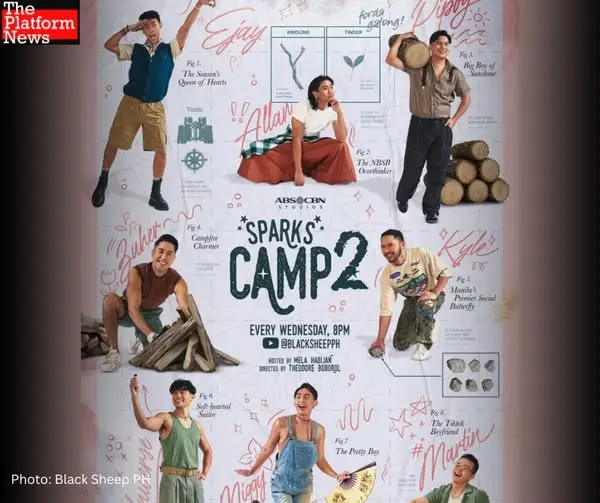We’re used to seeing heterosexuals date, fall in love and fall out of it in TV series, movies and animation. Disturbing this construct, however, is more likely to be a social fallout for creators and producers who would dare such an attempt.
But queer community is known to be unbothered especially if what they are pushing for are narratives that they can call their own. It’s a constant battle where failure is imminent but, in some days, wars have ceased fire.
Their creativity has been silenced long enough.
This did not stop showrunners of Sparks Camp to make the Philippines’ first-ever queer- dating reality show into reality. They made sure that finally, inclusivity can still thrive even under the duress of a very strict, predominant Catholic country like the Philippines where these kinds of shows are deemed taboo and not accepted as a regular lineup for TV programs filled with soap operas.
It’s an indication that Filipinos would rather wallow over the lives of fictional TV characters than accept the reality of gay narratives brought out of the closet.
Earlier this year, Netflix unveiled The Boyfriend, a Japanese queer reality show like Sparks Camp where contestants “over the course of a month, a group of men live under one roof and run a coffee truck together to connect and hopefully meet their one true boyfriend.”
Think of it like a queer Big Brother, although it is hard to believe that this kind of show only exists now even though Japan already passed the country’s first law addressing anti-LGBTQ discrimination.
Season 1 finished its underrated run last year but still managed to snag a 2024 ContentAsia awards nomination as Best Original Reality and/or Competition Program. The second season recently wrapped up a few weeks ago but its impact to the LGBTQIA+ community is still felt as of this writing.
The concept of the show, although tried and tested from last season, still managed to be as exciting with tons of kilig moments.
All 10 campers need to give their mutual sparks to someone with whom they felt deep connections while doing challenges in exchange for free dates and extended meaningful conversations. There were also moments when campers put their guards down and wore their hearts on their sleeves and shared secrets, most of them highlighting their existential struggles, their highs and lows and yes, sexual escapades.
Host, Mother Sparker and resident matchmaker Mela Habijan, is the show’s heartbeat.
Ultimately, the show will reveal the campers who have chosen each other so they could potentially date outside of the camp and let their sparks fly to where it could take them. Like its predecessor, 2 couple endgames also happened and was described on their Instagram post as “Complicated.” (https://www.instagram.com/p/C-9rBNfP6ah/…)
If you watched the season, you will certainly know the tangled web they wove during the show’s final episode!
The power that this show can harness is not overstated enough. Heteronormative narrative is not the only accepted storytelling trope because LGBTQIA+ centric contents are growing in popularity, perhaps when Boys Love stories gained popularity during the pandemic.
Although the views for each episode have not reached millions, they will soon get there. They have kicked open the door. The trick is to leave it ajar.



